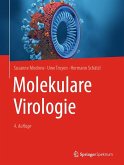The role of the cytokine macrophage migration inhibitory factor (MIF) in the immune response and in the immunopathogenesis of different inflammatory, autoimmune, and infectious disorders is now well-established. Recent studies continue to broaden considerably the role of MIF in both normal physiology and pathology, which range from such diverse areas as oncogenesis, metabolism, and cellular stress responses. MIF's molecular mechanism of action in these contexts is becoming increasingly understood and the role of variant MIF alleles in different conditions continues to be defined. New family members, such as D-dopachrome tautomerase, or MIF-2, and the closely homologous genes encoding by parasites have been defined and are being functionally characterized. MIF directed therapies also are entering clinical testing and ultimately may be applied in a pharmacogenomics manner. This book provides a comprehensive synthesis of the state-of-the-art of MIF science. The intended audience are post-graduate students and researchers in inflammation, innate immunity, immunology, and immunopathology.
Dieser Download kann aus rechtlichen Gründen nur mit Rechnungsadresse in A, B, BG, CY, CZ, D, DK, EW, E, FIN, F, GR, HR, H, IRL, I, LT, L, LR, M, NL, PL, P, R, S, SLO, SK ausgeliefert werden.









